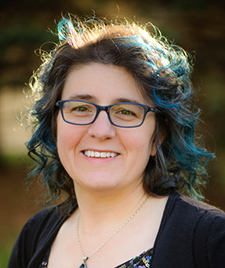Why voters need to reject conspiracy theories from school board candidates
As the most intense and expensive odd-year campaign for Minnesota’s school boards comes to a close, we’re concerned that the avalanche of unreality we’re hearing in our communities will make school districts ungovernable in the next few years if something doesn’t change.
We should know. We’re incumbent school board members in some of Minnesota’s suburban school districts.
Although we’re not in the same school district, we’ve all had similar strange and demoralizing conversations with voters who have been fooled by advocacy groups and right-wing media outlets that are more committed to spreading fear than truth.
For example, we’ve been told, by people who should know better, that common lessons to help students recognize and control their emotions, often called social-emotional learning, were part of a plot by the United Nations to bring about a world government.
With a straight face, voters have said surveys to assess students’ mental health were part of a deep state scheme to “data mine” children and create paper trails that will one day be used to prevent them from owning guns.
It feels crazy to write this, but there truly are people who believe there are pills that turn kids gay in the free lunches offered in school this year. (There aren’t.) There are litterboxes in the bathrooms and “furries” in the hallways. (Nope and nope.) Library books with LGBTQ+ characters can lower reading scores. (No. We don’t even know how that would work.) Critical race theory is part of the curriculum. (No. That’s for grad school, not kindergarten.)
You can’t always debunk these myths with facts because conspiracies don’t work like regular information. As the philosopher Jason Stanley has written, conspiracies are designed and spread to smear their target by questioning the credibility and decency of the “other.”
Where do these education myths come from? In Minnesota, they’re spread by groups that have endorsed candidates and are actively campaigning for them using nationalized and polarizing rhetoric.
We believe the conspiracy theories have taken root because there are so few trusted sources of local news left in the Twin Cities suburbs. There are a few journalists trying to correct the record, but they’re being drowned out by furry folklore on social media.
We’re asking voters to step up in the last few days before Election Day on Tuesday, Nov. 7, and really examine the candidates for their local school boards. Check out which organizations are endorsing them. Check their websites. See who they like on social media and what ideas they choose to spread. When it comes to governing, we know that even the tone of your communication matters.
What you should not do, for example, is respond to a tweet by the U.S. Secretary of Education condemning book banning with a screenshot of a panel from the illustrated novel “Gender Queer” and the hashtag #phonicsnotfellatio. That’s what the Minnesota Parents Alliance did on Oct. 28.
No matter that the book is for adults, the myth is that it’s in elementary school libraries. Why bother with the fact that the Minnesota Legislature already passed the READ Act to reform reading instruction when it’s more fun to throw mud? One short tweet shows why we’re so worried.
Of course, people are entitled to their own opinions. But voters should decide if those opinions are grounded in research and experience, or if they’re just reactions and repetitions to dollops of disinformation from the usual suspects at Alpha News and Breitbart.
Now, more than ever before, Minnesota’s students need their schools to operate efficiently. As school board members, we need to organize resources to meet the mental health crisis in schools, recruit and retain staff, keep our schools safe, recover from pandemic learning loss, and set budgets that support students in all the ways they need — even when there is never enough money to do everything.

Bianca Virnig
School boards can’t function when their members believe things that simply aren’t true and target the district’s own students and educators with vile attacks. So, we’re urging voters to choose competence and experience over ugly untruths in school board elections this year. Doing so will make a difference in 2023 and send a signal this style of campaigning won’t work next year or the year afterward.
Bianca Virnig is a school board member in District 196 (Rosemount/Apple Valley/Eagan). This piece was also authored by school board members Tamara Grady of District 297 (Osseo); Lucy Payne of District 892 (Mahtomedi); Avonna Starck of District 14 (Fridley); Curtis Johnson of District 623 (Roseville), and Michelle Pettyway of District 13 (Columbia Heights).

